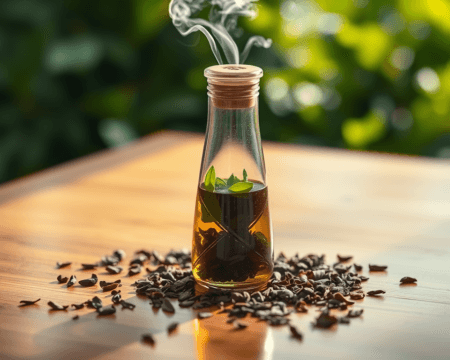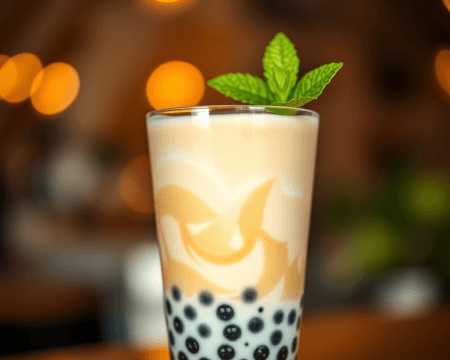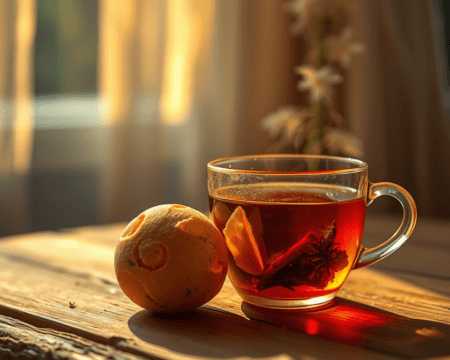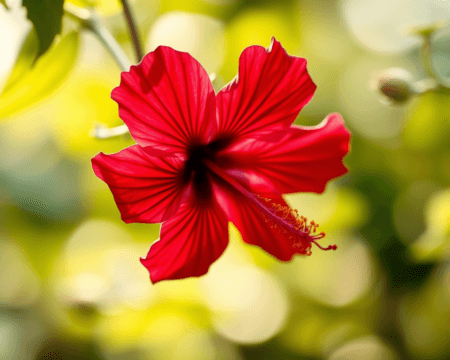You just got your braces tightened, and the thought of sipping on a warm cup of tea crosses your mind. But you ask yourself: is it safe? Can I enjoy tea without damaging my smile or ending up with stained braces? I get it. You want answers, and you’re looking for practical advice without the fluff. Well, buckle up, because we’re going straight to the goods.
Key Takeaways
- Drinking tea is generally safe with braces, but some types can stain your brackets.
- Choose lighter teas if you’re concerned about discoloration—think green or herbal teas over black tea.
- Maintain good oral hygiene post-tea consumption to keep your braces and mouth in top shape.
Is It Safe to Drink Tea While Wearing Braces?
Understanding the Basics of Tea Consumption with Braces
First, let’s tackle the burning question: Is drinking tea while wearing braces safe? Here’s the deal—most teas are okay to sip on, but you need to be mindful of a few factors. Brace wearers often worry about staining and sugar content in their beverages.
Orthodontics experts need you to know that your brackets can potentially stain, especially with darker teas. So if you’re loading up on a daily ritual of black tea or a chai latte, the risk of getting some weird discoloration is real. But fear not! We’re not here to ruin your tea-time—just to help you navigate it smarter.
The Pros and Cons of Drinking Tea with Braces
Let’s break down the pros and cons like a pro:
Pros:
– Tea can be soothing (hello, chamomile) and may even help with inflammation in your mouth, which might occur after adjustments.
– It’s a lower-calorie beverage choice compared to sugary drinks.
Cons:
– Potential staining risks on your braces, especially with darker formulations.
– Some teas can be acidic, which might irritate sensitive gums and teeth.
In the grand scheme of things, as long as you’re choosing wisely and maintaining superb dental hygiene, you’re good to go with your tea.
Types of Tea and Their Impact on Braces
Common Types of Tea and Their Effects
When it comes to types of tea, we’ve got a whole spectrum, and some perform better than others for those sporting braces.
- Green Tea: This is where it’s at for the health-conscious. Lower in caffeine and acidity, it’s less likely to stain your braces. Plus, it’s got antioxidants that are a win for your dental health.
- Black Tea: A powerhouse for flavor, but beware. This type can lead to discoloration on brackets over time.
- Herbal Tea: Often caffeine-free and lower in acidity, herbal teas can be your best friend. Peppermint or chamomile? Yes, please!
- Oolong Tea: This semi-oxidized option provides a robust taste without the staining worries that black tea brings.
Keeping track of tea types goes a long way in protecting your braces and enhancing your overall experience.
Tea Stains: What You Should Know
Here’s the reality: stains are a thing. The more you indulge in darker teas, the higher your risk of discoloration on those shiny metal brackets.
Let’s talk maintenance. If you’re loving your tea but worried about stains, here are a couple of helpful strategies:
- Swish Water: After your tea, swish some water around your mouth. It’s like a mini rinse to help get rid of tea residues.
- Brushing: If you can manage it, brushing your teeth after tea will save you from stained brackets.
It’s crucial to stay vigilant about your oral hygiene, especially when tea’s in the mix, to maintain that bright, killer smile.
Expert Recommendations on Tea Consumption with Braces
Advice from Orthodontists
You’re wondering what the pros say. Let’s break it down. Orthodontists recommend that you should opt for light teas whenever possible. They’re not just trying to sell you on a fad; they genuinely want what’s best for your teeth.
After your tea, consider using a non-alcoholic mouthwash to keep your mouth fresh. You know—don’t just keep treating your teeth like diamonds. Give them the best treatment possible!
Tips for Maintaining Oral Health While Enjoying Tea
Now, how about some straightforward strategies for keeping your mouth healthy while still embracing your tea habits? Here’s what you should keep in mind:
- Regular brushing and flossing are non-negotiable. Invest in a good interdental brush to get in between those brackets.
- Maintain a solid routine of check-ups with your dentist. They can give you tailored tips on what’s working and what’s breaking down.
- Be cautious about adding sugar to your tea; sugar is an enemy of braces and can lead to more cavities.
Do yourself a favor: Take the advice of those who have seen it all. Following these experts’ tips will keep your smile confident and dazzling.
User Experiences: Drinking Tea with Braces
Real Stories from Brace Wearers
Nothing beats real talk. I’ve chatted with folks who’ve navigated the world of braces and tea, and the feedback is surprisingly rich. Many reported using herbal teas as their go-to, singing praises about how much gentler they felt on their gums and teeth.
One user mentioned she loved peppermint tea when her mouth felt sore post-adjustment—it’s like a comforting hug in a cup. Another told me how he switched to green tea, and he can barely notice any staining on his braces after months.
Social media communities have embraced these discussions too, sharing tips and experiences that are downright refreshing.
Misconceptions Surrounding Tea and Braces
Time to bust some myths. A common misconception is that all tea stains—this isn’t entirely true! While black and dark teas can lead to staining, others like white or light herbal teas are often much safer for those braces.
Another idea floating around is that you can’t enjoy tea at all. That’s simply not the case! Tea can be part of your beverage lifestyle; just choose wisely and enjoy responsibly.
You don’t have to sit in silence sipping plain water; just be smart about it. With the right choices and proactive care, you can enjoy your favorite brews while rocking those braces with confidence. It’s all about staying informed and ready to tackle whatever comes your way.
Frequently Asked Questions
Can drinking tea cause discomfort with braces?
While tea is generally safe to consume with braces, some people may experience mild discomfort if the tea is too hot. It’s advisable to let your tea cool slightly before drinking to avoid any sensitivity in your teeth or brackets.
How can I prevent tea stains on my braces?
To minimize staining from tea, opt for lighter teas like green or herbal varieties. Additionally, maintaining excellent oral hygiene by brushing your teeth after drinking tea can help keep your braces stain-free.
What should I do if my braces become stained?
If you notice staining on your braces, talk to your orthodontist. They may provide professional cleaning options or recommend specific dental products to help remove stains and keep your smile bright.
Are there any teas I should avoid with braces?
You should avoid dark teas, such as black tea, that are more likely to cause discoloration. Also, any sugary or high-acidic teas can increase the risk of plaque buildup, which can harm your oral health.
How often should I brush my teeth after drinking tea with braces?
Ideally, you should brush your teeth every time you consume food or drink, including tea. This ensures that any sugar or potential staining agents are promptly removed, protecting your braces and teeth.
Is iced tea safe to drink with braces?
Iced tea is generally safe to drink with braces as long as it’s not too sweet or dark. Just remember to keep up with your oral hygiene routine afterward for the best results.
Can I add milk or sugar to my tea while wearing braces?
Yes, you can add milk or sugar to your tea, but it’s best to avoid excessive amounts, as sugary drinks can contribute to cavities. Make sure to brush your teeth afterward to maintain oral health.
Does herbal tea pose any risks to braces?
Herbal teas are typically a safe option for individuals with braces. However, some herbal teas may contain natural dyes that could lead to discoloration, so it’s wise to monitor any changes in your braces’ appearance.
How long should I wait to eat or drink after having tea?
It’s recommended to wait about 30 minutes after consuming tea before eating or drinking anything else. This allows your saliva to help neutralize any acids and reduces the likelihood of staining.










